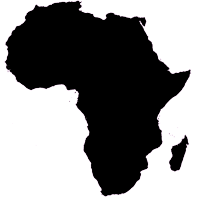 In the United States, the Centers for Disease Control and Prevention report the infant mortality rate for African Americans is 11.4 per 1,000 live births. This is more than twice the rate for non-Hispanic Whites. According to the Organization for Economic Cooperation and Development, a group of 36 developed nations, the United States ranked 33rd out of 36 nations in infant mortality, in large part due to high rates of infant mortality among Blacks and other racial/ethnic groups.
In the United States, the Centers for Disease Control and Prevention report the infant mortality rate for African Americans is 11.4 per 1,000 live births. This is more than twice the rate for non-Hispanic Whites. According to the Organization for Economic Cooperation and Development, a group of 36 developed nations, the United States ranked 33rd out of 36 nations in infant mortality, in large part due to high rates of infant mortality among Blacks and other racial/ethnic groups.
But a new study by researchers at the University of Southern California and the University of Chicago presents an even more shocking statisic: Two thirds of all mothers in sub-Saharan African nations lose a child by the time they are in their late 40s. Using data from 20 sub-Saharan African countries spanning two decades, the researchers found that more than half of 45- to 49-year-old mothers have experienced the death of a child under age 5, and nearly two-thirds have experienced the death of any child, irrespective of age.
“In the shadows of very high child mortality rates that the global health community typically focuses on are all these grieving parents that never receive any attention,” said study co-author Emily Smith-Greenaway, an assistant professor of sociology at the University of Southern California. “This study tells us the burden of bereavement is much greater than we knew and offers a new perspective on global inequality. We believe these indicators can be used to improve current understandings of mortality change, bereavement as a public health threat, and population dynamics.”
“We have no reason to believe that the effect of these losses on mothers — the grief, sadness, and disappointment — fades with time,” Dr. Smith-Greenaway added. “We can do better to shed light on the grief and trauma that is still very much alive in a population.
The full study, “Maternal Cumulative Prevalence Measures of Child Mortality Show Heavy Burden in Sub-Saharan Africa,” was published in the Proceedings of the National Academy of Sciences It may be accessed here. Jenny Trinitapoli, an associate professor of sociology at the University of Chicago, co-authored the research.











